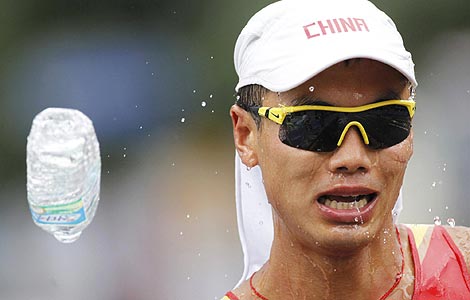Bohai oil leaks special: the empty sea
Updated: 2011-09-04 08:30
(China Daily)
|
|||||||||||
As the oil companies try to stop the Bohai leaks and the long legal process to proper compensation starts, that sea of controversy is still storm-tossed. The China Daily Sunday team of Han Bingbin, Zhao Ruixue, Zhang Xiaomin and Eric Jou spreads out along the coastal communities of Bohai to see how they are coping.
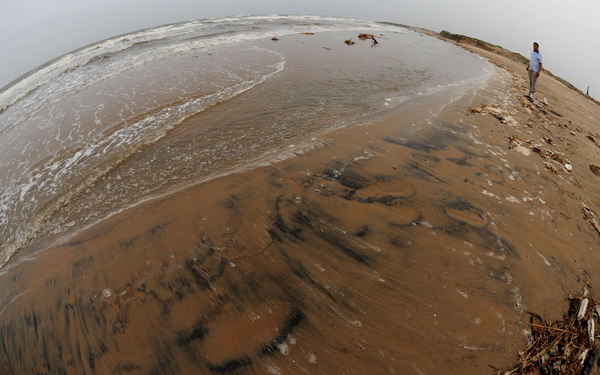
On the surface, Bohai caresses a shoreline that links some of China's most prosperous cities and municipalities. Its waters lap against the peninsula of Shandong and its jewel on the water, Qingdao, and across the water, another gem gleams in Dalian, Liaoning's pride and joy. In between the two are Hebei Province and Tianjin Municipality. The stellar neighborhood makes Bohai one of the busiest waterways in the country, if not the world.
But let's dive much deeper. Underneath the glittering ocean surface, all is not well. Those who have traditionally depended on Bohai for their living say that in another 10 years or so, they will have to look for other work. The sea is dying, they conclude sadly. They listed the signs for our reporters. Where once fishermen could catch uncountable varieties of fish and crustaceans, the nets now come up mostly empty. As proof, fishermen point out that migrating birds and spawning fish have given Bohai a wide berth. No whales or sharks have been seen for years. Even the sea gulls, indomitable scavengers, are less and less seen. The last season they visited Dalian, they dived into what they thought was the shimmer of fish, and came up covered in oil sludge. Creatures of the air and sea learn fast.
And it seems, they learn their lessons a lot better than men. In this special issue, our team of reporters takes a closer look at the people who live by the sea, and listen as they talk about their beloved Bohai, their hopes, their desperation and their resignation.
They sell seashells
The Bohai oil spill has brought about pollution of another kind — including conspiracy theories credited to those with vested interests. Han Bingbin and Zhao Ruixue untangle the web in Changdao, Shandong.
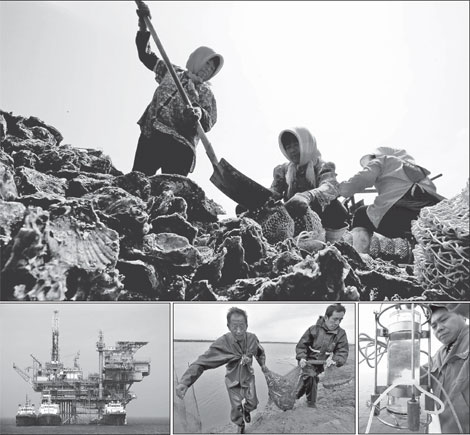 |
|
Bohai is paying the price for its proximity to progress. Along with it, the fishermen along its shores are also having to count the cost, and to them, it may mean that their whole livelihood is at stake. There is oil under the sea, but its exploitation has to be properly managed so that Bohai's ecosystem, too, does not suffer any more than it already has, or we will all mourn the loss of more than just a regular supply of seafood. [Provided to China Daily] |
More than a month ago, Zhao Fuguo, 61, had a nasty reality check in his Beicheng home. Fellow villagers harvesting scallops in neighboring Miaodao island came back with tales of sifting through piles of dead shellfish to salvage the ones that still lived. And then he started reading reports attributing the situation to the Penglai 19-3 field oil spill in Bohai Bay. Zhao was terrified. He had invested over 300,000 yuan ($46,980), including labor force and seed shellfish, and he had about 13,000 baskets of scallops ready for harvest this year. If the oil spill was really affecting the waters that badly, he may face a sudden, total loss. Fortunately for Zhao, his fear proved groundless. By the end of August, Zhao's scallop harvest came in as good as previous years and he quickly and successfully sold it off.
There are some fish farmers who suspect the rumors of heavy oil pollution at Changdao is the work of unscrupulous seafood dealers in Penglai trying to stop travelers going across to Changdao by exaggerating the extent of the pollution. The aim is to get the visitors to stay in Penglai for the seafood. Penglai is about a 40-minute boat ride away from the island, and is actually nearer the oil spill than Changdao.
An oyster farmer who insisted on being called "Sister Qu", 40, says it was probably these seafood sellers who started the rumor in the first place. According to Sister Qu, these rumormongers tell tourists that Changdao does not have electricity and even the water is not safe to drink.
But still, she was happy enough to see buyers snap up her oyster harvest. She had steadily harvested and sold between 500 and 1,000 kilograms a day this year, evidence that her island had not been seriously affected by the oil spill, she says.
Changdao still produces the tastiest seafood in the country, she proudly declares.
But scallop farmer Zhao, who has been in the business for more than 20 years, still has a tangible fear.
Just a week ago, he saw the water along the coast outside his sea cucumber breeding block turn red. Further out, the water was black. The alarming color changes lasted about three days, and Zhao firmly believes that it was some sort of pollution.
He has no explanation for the mystery but it brought back memories of a long period of darkness.
Between 1997 and 2008, over 80 percent of the scallops Zhao bred died each year, some of them while they were still babies. The loss was sudden, because Zhao says he had a normal harvest just the year before, in 1996. The huge losses continued till 2008.
Hot Topics
Libya conflict, Gaddafi, Oil spill, Palace Museum scandal, Inflation, Japan's new PM, Trapped miners, Mooncake tax, Weekly photos, Hurricane Irene
Editor's Picks
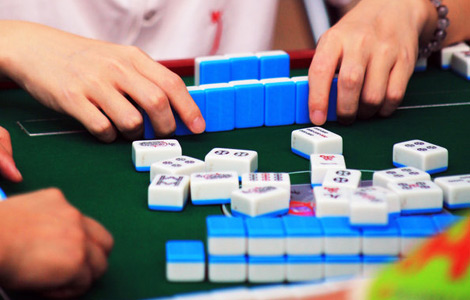
|
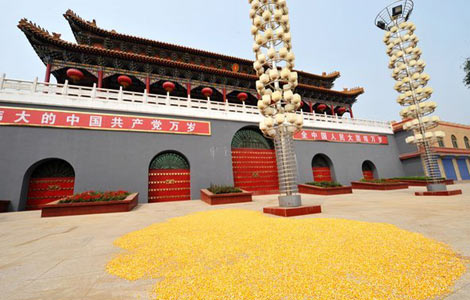
|

|
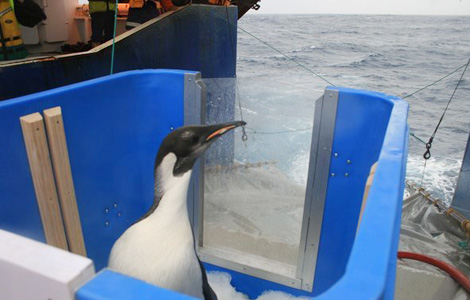
|

|

|


